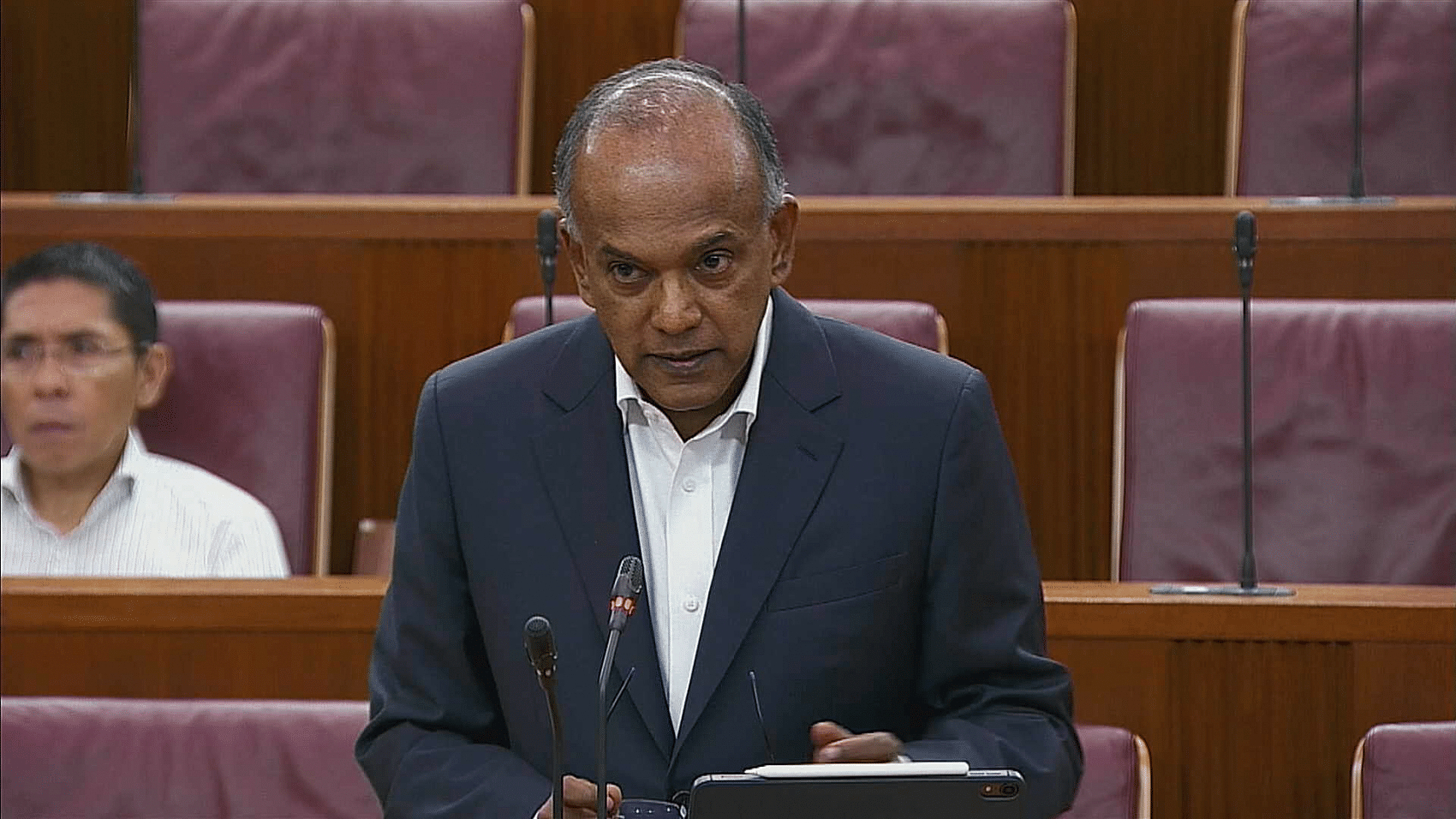Parliament: Impossible for courts to decide quickly on what is a falsehood, says Shanmugam
Sign up now: Get ST's newsletters delivered to your inbox

It is hard to determine whether those applying to take down or correct a possible falsehood can get an audience speedily with a judge, Home Affairs and Law Minister K. Shanmugam said on May 8, 2019.
PHOTO: GOV.SG
SINGAPORE - It is impossible to guarantee that the courts can decide in "a matter of hours" whether something is a falsehood and how to tackle it, Home Affairs and Law Minister K. Shanmugam said in Parliament on Wednesday (May 8).
Replying to Workers' Party chief Pritam Singh, Mr Shanmugam referred to one of the principles set out by a parliamentary Select Committee last year, which stated that the measures need to be taken in a matter of hours to achieve the aim of stopping falsehoods going viral.
The WP is asking for the courts - not ministers - to be the initial decision-makers on what falsehoods are.
On Tuesday, Mr Singh had argued that since the courts could grant protection orders to individuals and companies swiftly under the new Protection from Harassment Act, they could similarly issue orders just as quickly for fake news too.
But Mr Shanmugam, in a 10-minute back-and-forth exchange with Mr Singh, said the opposition party's proposal is not feasible.
One, it is hard to determine whether those applying to take down or correct a possible falsehood can get an audience speedily with a judge.
"Do you know how long it takes to get a duty judge?... Sometimes you can go to his house and see him but (can the action be taken) in a matter of hours? What if he is engaged in something else? He can only give you the time that he can," he said in rebutting Mr Singh, a lawyer.
Another reason the minister gave is that the parties whose possible falsehoods are being corrected or removed may contest the judge's decision.
"Due process means you must allow them to argue. That means you must set a hearing date. How long do you think that will take?" he said.
In a separate exchange, Mr Cedric Foo (Pioneer) asked Mr Singh if he thought the courts would be able to make decisions about falsehoods much quicker than the executive branch, "which is supported by 16 ministries, 135,000 officers with years of experience in different domains".
Mr Singh reiterated his belief that a speedy response from the courts is possible, as seen by the possibility of the swift granting of applications for protection orders under the Protection from Harassment Act (POHA).
Mr Foo replied that the anti-harassment laws are for private matters.
"(The fake news law) is about public interest, riots, the possible spread of wildfire, racial disharmony. These are huge public interest matters that have to be dealt with much faster than POHA cases because those are of an individual's interest," he said.
"They are important, but not as urgent as in cases under POFMA (Protection from Online Falsehoods and Manipulation Bill)."


